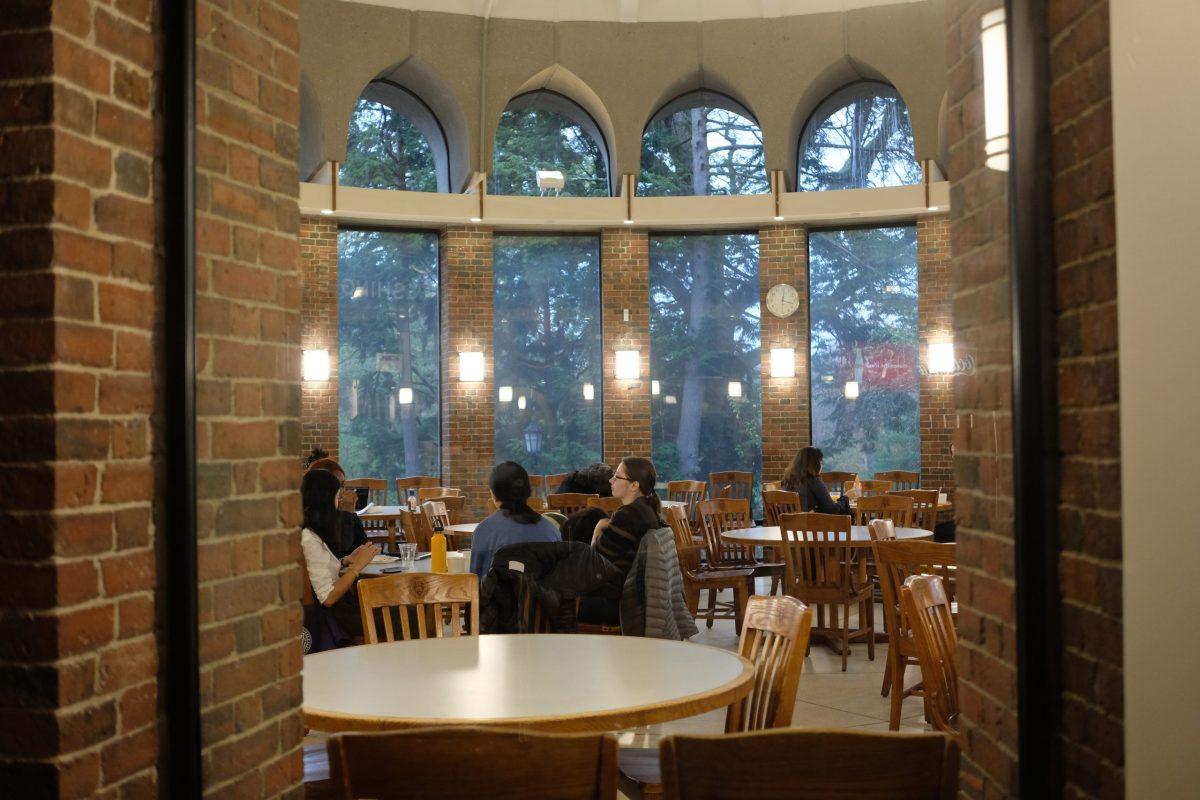This article is from The Wellesley News’ annual satire edition.
Every time I spend 15 minutes in line at Bates during the 12:45 p.m. lunch rush, or have to sit outside because there are no tables at Lulu, I can’t help but wonder: why is Wellesley preventing me from having more of these opportunities for character development? Frankly, the dining situation on this campus is far too convenient.
Having multiple dining halls on campus allows for the development of insular communities, as evidenced by the polarizing East Side, West Side divide, an underlying cause of many of the conflicts on campus. Students are able to fit into their STEM and humanities binary, without ever needing to interact with someone on the other side. While the move of several social science classes to the modulars has been a positive development, it has nonetheless proved insufficient to address tensions on campus.
Instead, having one dining hall on campus would enable cross-cultural communication and force interaction across differences. Furthermore, it would foster a close-knit community in which all students are forced to interact with each other. This goal would be furthered by shortening dining hours, allowing for all 2,400 of Wellelsey’s students to be at the same place, at the same time. This will allow for Wellelsey to become a more inclusive community, because we will have no choice but to have uncomfortable, awkward and difficult conversations.
This plan would also reduce costs for the College, by allowing for them to reduce their dining hall staff to quarter of what it is now. Reducing the amount of locations in which food is served would also ease the transition to fully automating the dining system at Wellesley.
While there may be concerns about a lack of seating, in practice this boils down to Wellesley students’ unwillingness to have physical contact with “strangers” (no one is a stranger in the siblinghood). By introducing avant-garde standing tables (sans the table), there will be an abundance of space to mingle with other students.
At this point, many of you may be wondering: which dining hall would be the one that stays open? While all of the dining halls have their merits, I argue that choosing one dining hall, or even setting up a rotating system would allow for too much stability. Real life is chaotic, and unpredictable, and it is the job of Wellesley College to be as unpredictable as possible to prepare students for the real world. So, we should have the geese choose the dining hall each morning at daybreak by counting the number of honks. This will allow for students to do an amusing scavenger hunt to find the open dining hall each day.
The solidarity of needing to ask random strangers where you can find food will be the final nail in the coffin of Wellesley’s divided culture. I truly believe that this is the most impactful thing we can do to make Wellesley a more inclusive place.






